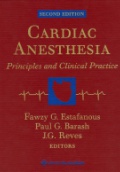Simulation-Based Training in Healthcare and Beyond: A Practical Guide to Team Debriefs
Michael A. Rosen, Eduardo Salas, Scott Tannenbaum, Peter J. Pronovost, Shad Deering, Nicola E. Schiebel, Heidi B. King
ISBN: 9781409407799
Vydavatelství: Taylor & Francis
Rok vydání: 2018
Vazba: Hardback
Počet stran: 200
Původní cena: 3 237 Kč
Výstavní cena:
2 913 Kč(t.j. po slevě 10%)
(Cena je uvedena včetně 10% DPH)
Katalogová cena: 95 GBP
Nárok na
dopravu zdarma
Termín dodání na naši pobočku v Brně je přibližně 3-4 týdny.
It should come as no surprise that people learn from experience. In one form or another, it is the primary means by which most of us have come to master the fundamentals of our profession. This is why simulation is such a valuable tool for learning. It allows people to have experiences they couldn't otherwise get in a predictable or systematic way. However, experience alone is not enough to ensure high levels of performance, patient safety, and quality of care. In addition to the experience itself, learners must receive feedback in order to learn. This includes the feedback that they receive during the simulation as well as the feedback they receive based on a careful reflection of events with instructors and their peers after the simulation scenario has ended. These after-action reviews or debriefs have been described as the heart and soul of learning from practice in simulations (Rall, Manser, & Howard, 2000). Empirical studies support this notion and have shown that debriefs are the primary means by which people learn from their experiences in simulations and transfer what they learn to the real world (Savoldelli, Naik, Park, Joo, Chow, & Hamstra, 2006; Issenberg, McGaghie, Petrusa, Gordon, & Scalese, 2005). So, in order for team training to result in better clinical outcomes, team members must engage in a quality debrief to make sense of the experience and translate that into better performance in the future. But what does a good debrief look like? How is it run, and by whom? What can trainers do to ensure that every debrief is as good as it can be-that team members come away from the experience learning the right lessons? While the science of training and simulation community of practice have developed answers to these questions, they remain generally inaccessible for practitioners. This book addresses that need. Written for practitioners charged with implementing simulation-based training (SBT) for teams in healthcare, it provides a practical tool set for conducting debriefs.

